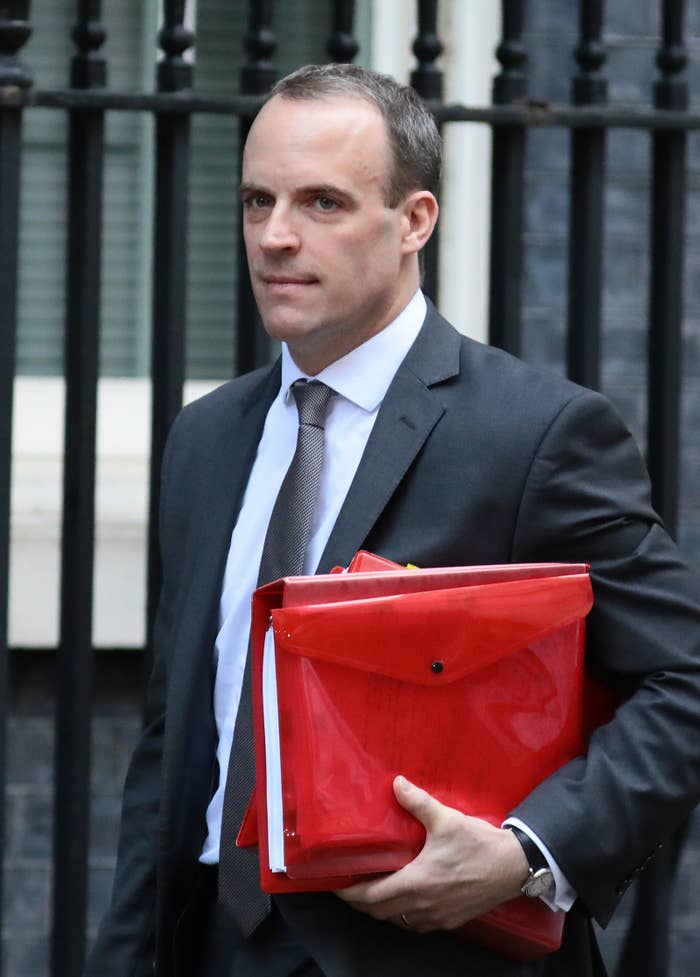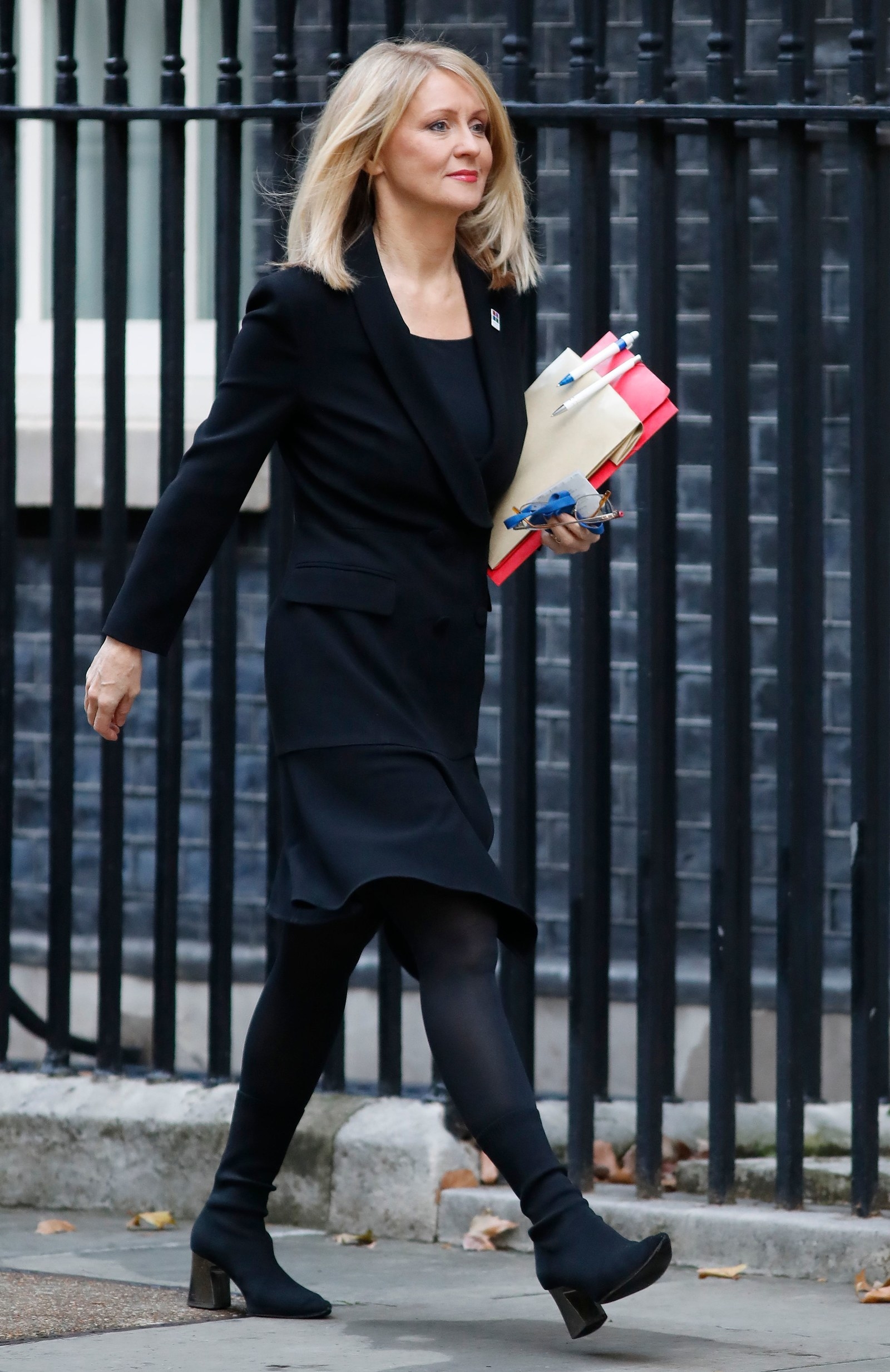
The stark consequences of a no-deal Brexit were laid bare for Michael Gove at a roundtable meeting with representatives from the food industry last month. There was no sugarcoating it: Mars bars could run out within weeks if the UK left the EU without a deal.
According to an industry insider present, the environment secretary was left reeling by a briefing from the Food and Drink Federation that of the 21 ingredients that make up a Mars bar manufactured at their factory in Slough, two imported products go off within a few days.
In the event of no deal, gridlock at the port of Dover would effectively shut down one of the country’s main routes for food imports. The ingredients couldn’t be stockpiled. The experts told Gove the UK’s entire supply of Mars bars would run out within two weeks.
The striking case study helps explains the former Vote Leave campaigner’s decision to stay in the government on Friday.
Allies of Gove told BuzzFeed News that, despite warmly backing the deal at cabinet on Wednesday, he privately loathes the agreement Theresa May has made with Brussels. But, they said, his experience running the Department for Environment and Rural Affairs had convinced him that the alternative of no deal was unconscionable.
According to a person who has been briefed on DEFRA’s internal discussions on no deal, officials are forecasting that the disruption to food imports and exports could last for more than six months, leading to shortages on supermarket shelves and putting enormous financial pressure on businesses that depend on exports to the EU.
“The other Brexiteers in the cabinet and a lot of those on the backbenches would go for no deal,” said one friend of Gove. “But Michael would never, because he has seen what it means in DEFRA.”
A second source familiar with his thinking said he did not want to be the person who brought down May and put the country on course for a no-deal Brexit that he would then be blamed for.
Gove’s decision to remain in post sent shockwaves through the Brexiteer ranks and led many in Westminster to conclude he had saved the prime minister, for now.

This was not how the week was supposed to go for those sceptical of May’s deal. BuzzFeed News can reveal how a small group of cabinet ministers calling itself the “burger club” (in contrast to Andrea Leadsom’s larger “pizza club”), consisting of Gove, Dominic Raab, Sajid Javid, Jeremy Hunt, and Geoffrey Cox, had been meeting for weeks to discuss their various gripes.
In conversations ahead of the crunch cabinet meeting, several of the burger club ministers resolved to tell May that they each opposed different aspects of the deal and wanted her to go back to Brussels and try again.
In further conversations, other colleagues agreed, and by the time cabinet sat down a total of 10 ministers had committed to raising opposition to the deal. Chris Grayling “spent several days complaining” to colleagues about what May had signed up to, said a source familiar with the conversations.
But when it came to the showdown, only Raab and Esther McVey made good on their threats to quit when May rejected their demands. “They all spoke against it, then they all fell into line,” said a Whitehall official familiar with the cabinet discussion.
Raab was given advance sight of the agreement, but despite being the Brexit secretary, he was not involved in its drafting. He was said to be shocked at new language in the text committing the UK to a future relationship that would “build on” a customs union with the EU.
He decided immediately after reading the document that there was no way he could support it, and that he would have to go if changes were not made, an ally said.
May’s aides were convinced Raab would back the PM, and spent Wednesday making farcical attempts to finalise travel arrangements for him to meet Michel Barnier to confirm the deal. Raab knew he was either resigning or forcing May back to the negotiating table — there was no way he was going to Brussels that night.
At Wednesday lunchtime, the DExEU team tried to politely inform those making the arrangements that their minister would likely not be travelling. Then a senior Downing Street official offered to let Raab out of cabinet early so he could fly via helicopter across the Channel, promising him a movie-style entrance to the Barnier photo opportunity. This was rebuffed.
With time running out, an RAF aeroplane was readied. Instead of boarding it, Raab told the chief whip Julian Smith he was resigning.

After cabinet, Leadsom told friends she did not support key aspects of the deal. An ally said that she felt she would be unable to introduce the meaningful vote to parliament in her role as Commons leader unless changes were made to the deal. They said she could resign ahead of the vote.
She is convening a meeting with Gove, Fox, Mordaunt, and Grayling to “rewrite” the agreement. Other Brexiteers dismissed the meeting as an attempt to save face, noting that May has already ruled out any further changes.
The failure of others to follow Raab and McVey out of the government left Brexiteers turning on each other this weekend. Supporters of Raab and McVey furiously accused the other members of the burger club of reneging on their agreement to oppose the deal at cabinet.
As they failed to secure the 48 letters needed to trigger a vote of no confidence in May on Friday, members of the European Research Group of Eurosceptic Tory MPs blamed Gove for their situation. They said he was chiefly responsible for the Brexit debacle, first by paving the way for May to become PM, and then by saving her deal.
Steve Baker warned darkly that the political careers of those Brexiteers who remained in the government were in peril. “You can’t be a plausible leadership candidate if you stay in cabinet,” he said.

